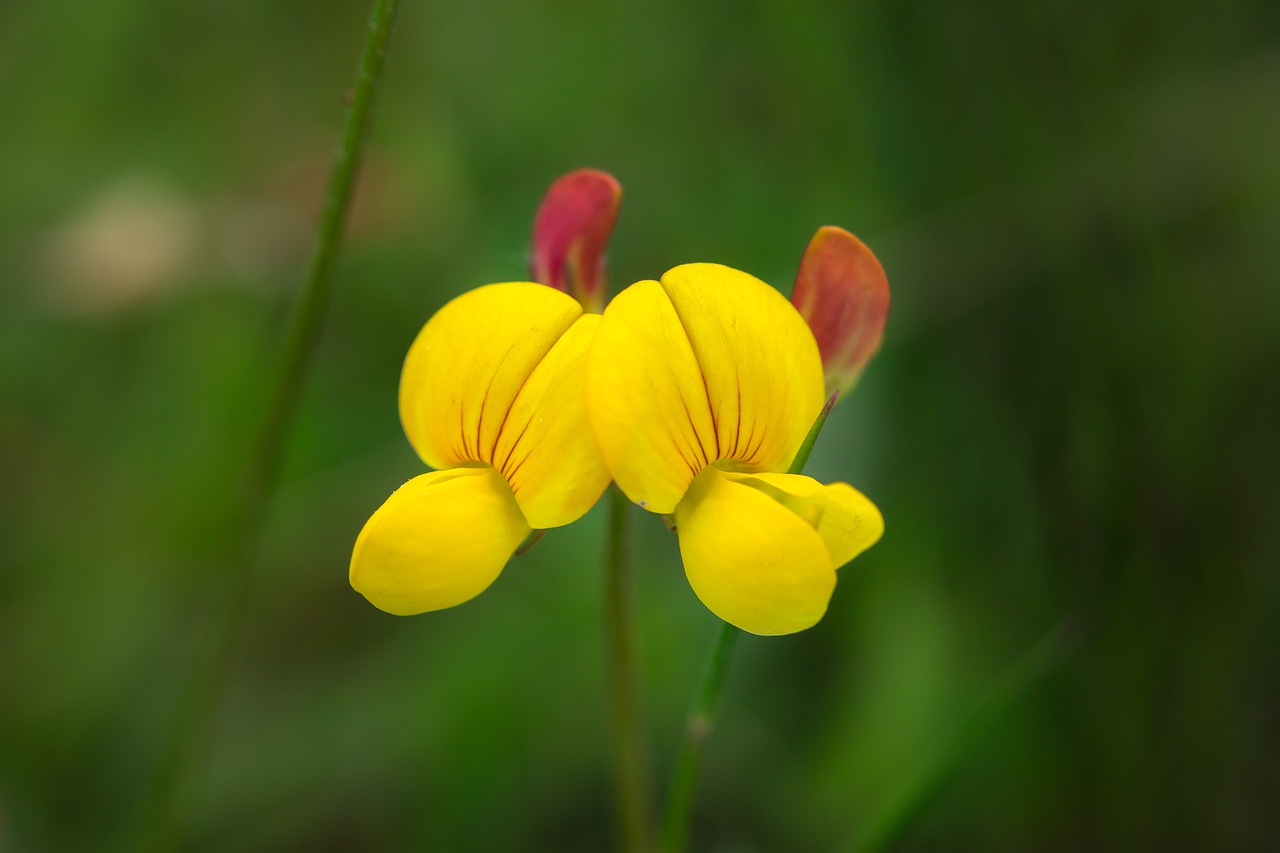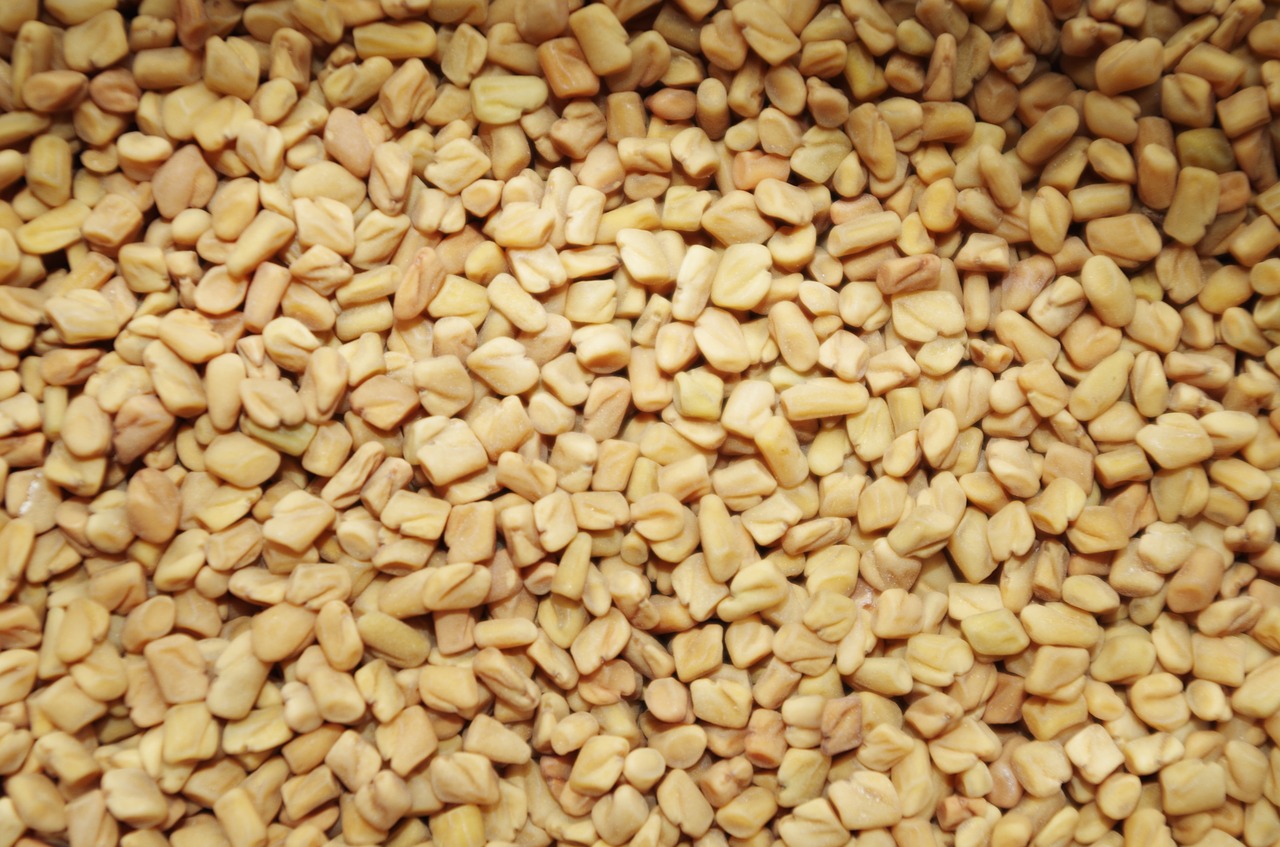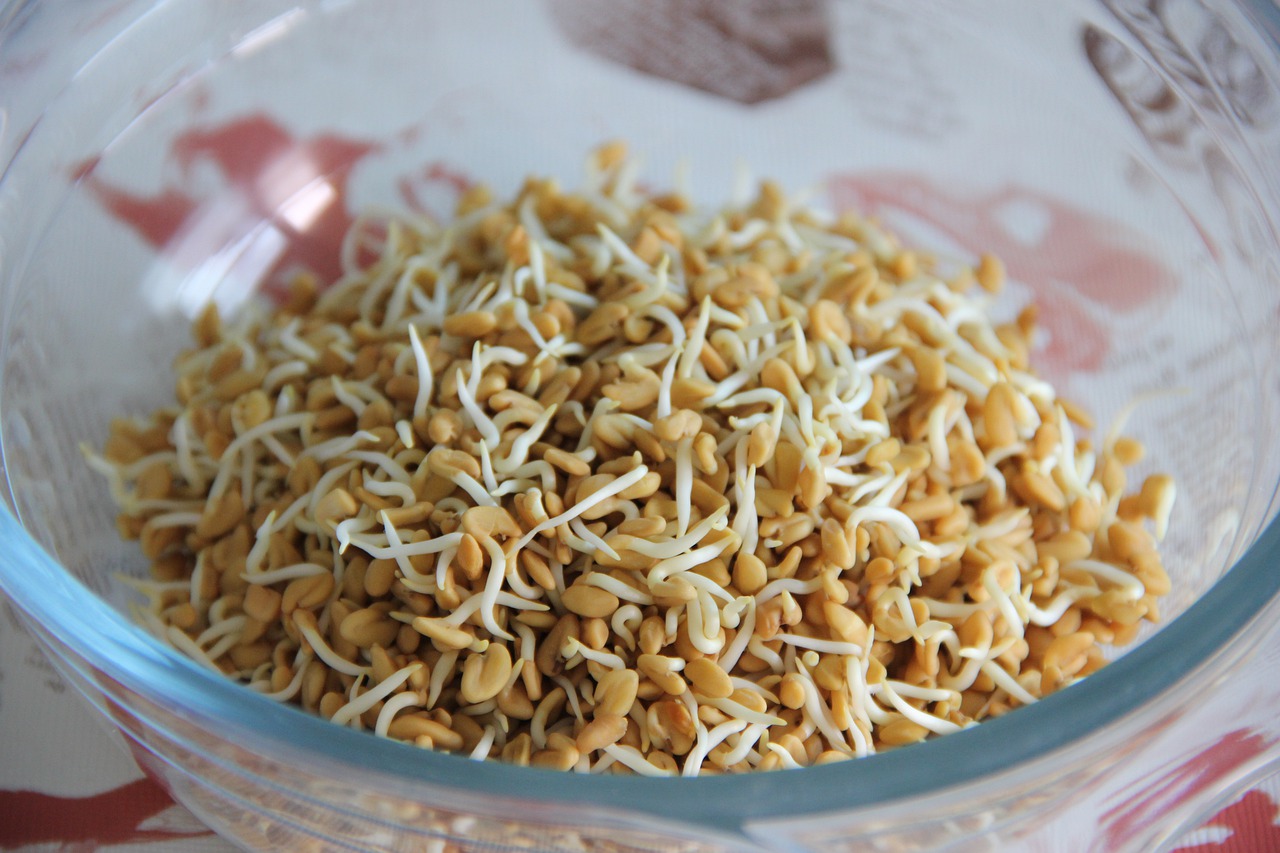Fenugreek; Trigonella

This is about fenugreek including its hormonal properties and potential use for breast enhancement.
Etymology
The genus of fenugreek goes by the scientific name of Trigonella. Greek hay is another name for fenugreek. Trigonella foenum-graecum known as sicklefruit fenugreek is a popularly used species.
Fenugreek belongs to the Fabaceae or Leguminosae family.
Fenugeek is also known as: Alholva, Bird's Foot, Bockshornklee, Fenogreco, Greek Clover, Greek Hay, Hu Lu Ba, Methi, Woo Lu Bar and by its genus name of Trigonella.
Properties

Phytohormones of interest
The most predominant sapogenin phytoprogestins in fenugreek are: diosgenin, yamogenin and tigogenin. Betasitosterol is the most abundant sterol (phytoprogestin) in fenugreek.
Trigonella contains the flavonoid phytoestrogens: apigenin, luteolin, kaempferol and their derivatives.
Published studies
Fenugreek has the potential to raise bodily estrogen and androgens. Higher prolactin levels were found in goats that ate fenugreek.
Anecdotal evidence
Fenugreek causes minor breast wideness, which suggests a progestogenic property. This is likely due to diosgenin, yamogenin, tigogenin and betasitosterol. Overuse of fenugreek causes reduced efficacy for breast enhancement. Using too much fenugreek can also cause acne to occur, and subsequently additional body hair.
Use
Trigonella for breast enhancement

Fenugreek can be used with varying herb combinations depending on the time of the menstrual phase. 1 fenugreek seed at a time in tea with accompanying herbs is highly effective and recommended.
Fenugreek requires equal or lesser amounts of spearmint and sunflower for consistency. Barley, likely rye and likely other lignan containing seeds can replace sunflower. When fenugreek is used with either spearmint or sunflower both positive and negative differing effects often occur. For consistent positive results, both are needed. Other herbs around fenugeek can vary depending on time of phase.
Trigonella or herbs with similar properties are in the simplified herb program. The herb program of menses is needed for balance for this named phase. BCP01 is a composite page of pieces of different programs on birth control or IUD use.
Herb timing and combinations' success for breast enhancement relies on menstrual phases. Descriptions and pictures of results from herb combination use can be seen in programs.
Similar herbs
Shatavari (Asparagus), suma (Hebanthe), maca (Lepidium), Passionflower (Passiflora) and kudzu (Pueraria) have similarities to fenugreek (Trigonella), that they contain both phyto-progestins and phyto-estrogens. Their properties likely vary, so they may require a different proportion or a different variation of companion herbs.
Shatavari, suma or maca are possibly partial or full replacements for fenugreek, based on their similar properties.
Precautions
See precautions for more details of care to be taken with herb use. Proper nutrition is a consideration for health. Also, check for the latest blog updates about herb and hormone safety.
It is very important that menses be light and not prolonged.
If you have hirsutism, PCOS, hot-flashes, other signs of hormone imbalances, see estrogen-imbalance, and hirsutism program journals at hirusitism-topic before trying herbs.
Herb concentrates can be tens of times more potent by weight than herbs in solid form. This can easily lead to hormone imbalances. For this reason, concentrate extracts are not recommended for extended or excessive internal use, especially during fertility years. Concentrates shouldn't be used to overcome plateaus. Another issue with herbal extracts, is that they may not have the full range of properties of the herb. Essential oils are not recommended for breast enhancement. If opting to use herb extracts, use no more than 1 drop at a time diluted in a food-grade carrier oil (like unrefined olive oil), or water.
More

For the latest herb programs and how to get started, see: guide. Pictures of breast enhancement can be seen in the program journals of Anon09, Bubblemelon, Jellie and anon02.
For resources on hips and butt enhancement, see: /appendix/hips-butt-enhancement and /appendix/kettlebell.
breast-endocrinology.pdf describes the science of breast development and endocrinology. It also describes symptoms related to hormone imbalances. Biology and hormone imbalances are excerpts from this ebook. breast-endocrinology.pdf uses a Creative Commons (CC BY-ND 4.0) license.
Breast.is blog
References:
- Influence of a Specialized Trigonella foenum-graecum Seed Extract (Libifem), on Testosterone, Estradiol and Sexual Function in Healthy Menstruating Women, a Randomised Placebo Controlled Study.. https://www.ncbi.nlm.nih.gov/pubmed/25914334.
- Pro-Apoptotic and Anti-Cancer Properties of Diosgenin: A Comprehensive and Critical Review. https://www.ncbi.nlm.nih.gov/pmc/articles/PMC5986524/.
- Diosgenin, 4-Hydroxyisoleucine, and Fiber from Fenugreek: Mechanisms of Actions and Potential Effects on Metabolic Syndrome1,2. https://www.ncbi.nlm.nih.gov/pmc/articles/PMC4352177/.
- Pharmacological Overview of Galactogogues. https://www.ncbi.nlm.nih.gov/pmc/articles/PMC4165197/.
- Drugs and Lactation Database (LactMed) [Internet]: Fenugreek. https://www.ncbi.nlm.nih.gov/books/NBK501779/.
- Accumulation of sterols and steroidal sapogenins in developing fenugreek pods: Possible biosynthesis in situ. https://www.sciencedirect.com/science/article/pii/0031942295006583?via%3Dihub.
- Characterization of Flavonoid Glycosides from Fenugreek. https://www.ncbi.nlm.nih.gov/pmc/articles/PMC4264189/.
Etymology & Definitions:
- USDA Plant classification: Trigonella. https://plants.usda.gov/java/ClassificationServlet?source=profile&symbol=TRIGO&display=31.
- USDA Plant classification: T. foenum-graecum. https://plants.usda.gov/core/profile?symbol=TRFO80.
- The Plant List: Trigonella foenum-graecum. http://www.theplantlist.org/tpl1.1/record/ild-8021.
- LiverTox: Clinical and Research Information on Drug-Induced Liver Injury: Fenugreek. https://www.ncbi.nlm.nih.gov/books/NBK548826/.
Resources:
- Drugs and Lactation Database (LactMed) [Internet]: Fenugreek. https://www.ncbi.nlm.nih.gov/books/NBK501779/.
